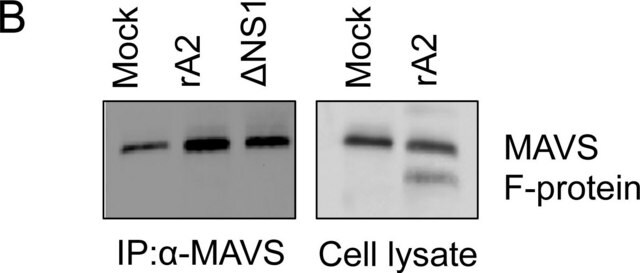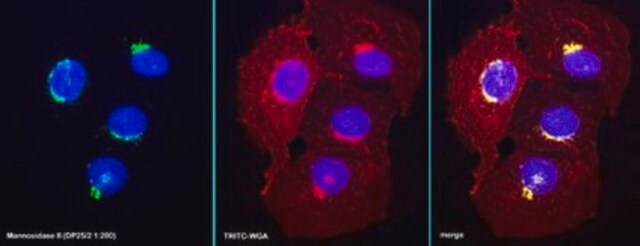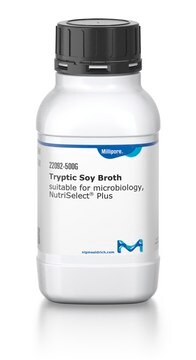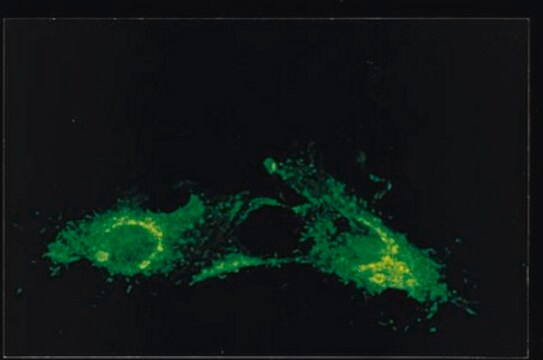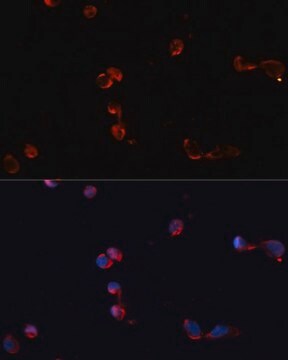MAB858-3-5
Anti-RSV Antibody, nucleoprotein, clone 130-12H
clone 130-12H, Chemicon®, from mouse
Synonym(s):
RSV
Sign Into View Organizational & Contract Pricing
All Photos(1)
About This Item
UNSPSC Code:
12352203
eCl@ss:
32160702
NACRES:
NA.42
Recommended Products
biological source
mouse
Quality Level
antibody form
purified antibody
antibody product type
primary antibodies
clone
130-12H, monoclonal
species reactivity
human
manufacturer/tradename
Chemicon®
technique(s)
ELISA: suitable
immunofluorescence: suitable
isotype
IgG2aκ
shipped in
wet ice
General description
RSV is a labile paramyxovirus that produces a characteristic fusion of human cells in tissue culture--the syncytial effect. Two subtypes, A and B, have been identified. Subtype B are characterized as the asymptomatic strains of the virus. The more severe clinical illnesses involve Subtype A strains.
Application
Anti-RSV Antibody, nucleoprotein, clone 130-12H is an antibody against Respiratory Syncytial Virus for use in ELISA & IF.
Physical form
Format: Purified
Other Notes
Concentration: Please refer to the Certificate of Analysis for the lot-specific concentration.
Legal Information
CHEMICON is a registered trademark of Merck KGaA, Darmstadt, Germany
Not finding the right product?
Try our Product Selector Tool.
Storage Class Code
10 - Combustible liquids
WGK
WGK 2
Flash Point(F)
Not applicable
Flash Point(C)
Not applicable
Certificates of Analysis (COA)
Search for Certificates of Analysis (COA) by entering the products Lot/Batch Number. Lot and Batch Numbers can be found on a product’s label following the words ‘Lot’ or ‘Batch’.
Already Own This Product?
Find documentation for the products that you have recently purchased in the Document Library.
Magdalena Anna Krzyzaniak et al.
PLoS pathogens, 9(4), e1003309-e1003309 (2013-04-18)
Respiratory Syncytial Virus (RSV) is a highly pathogenic member of the Paramyxoviridae that causes severe respiratory tract infections. Reports in the literature have indicated that to infect cells the incoming viruses either fuse their envelope directly with the plasma membrane
Our team of scientists has experience in all areas of research including Life Science, Material Science, Chemical Synthesis, Chromatography, Analytical and many others.
Contact Technical Service
